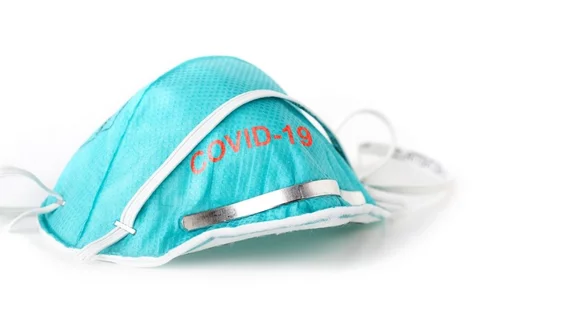Patients wearing a mask with metal during MRI exams at risk of suffering facial burns, FDA warns
The U.S. Food and Drug Administration is warning patients not to wear face masks with metal parts during MR imaging after it recently received a report of an individual’s face being burned.
In its Monday safety communication, the FDA noted that while it’s important for patients to wear a mask due to COVID-19, many contain metal components such as a bendable nose piece or staples on the headband that put them in danger.
“Burns from metal objects worn by a patient during an MRI exam are a known issue and patients should not wear any metal during an MRI,” the administration said in its statement. “Given the increased use of face masks during the COVID-19 pandemic, the FDA wants patients and healthcare providers to be aware of the potential risk of face burns related to the use of patient face masks containing metal during an MRI.”
Many individuals may not be able to determine if their mask has metal in it, the FDA noted. Some contain metallic nanoparticles or an antimicrobial coating with silver or copper. If patients are unsure, they should ask the person performing the MRI, the administration explained.
In the injury report, the FDA said a patient wore a face mask with metal during a 3 Tesla scan of the neck, and the report describes burns consistent with the shape of a mask.
Healthcare providers are encouraged to offer masks without metal to patients undergoing an MRI.
If a burn does occur, providers should report the injury to the FDA to help improve patient safety measures.

